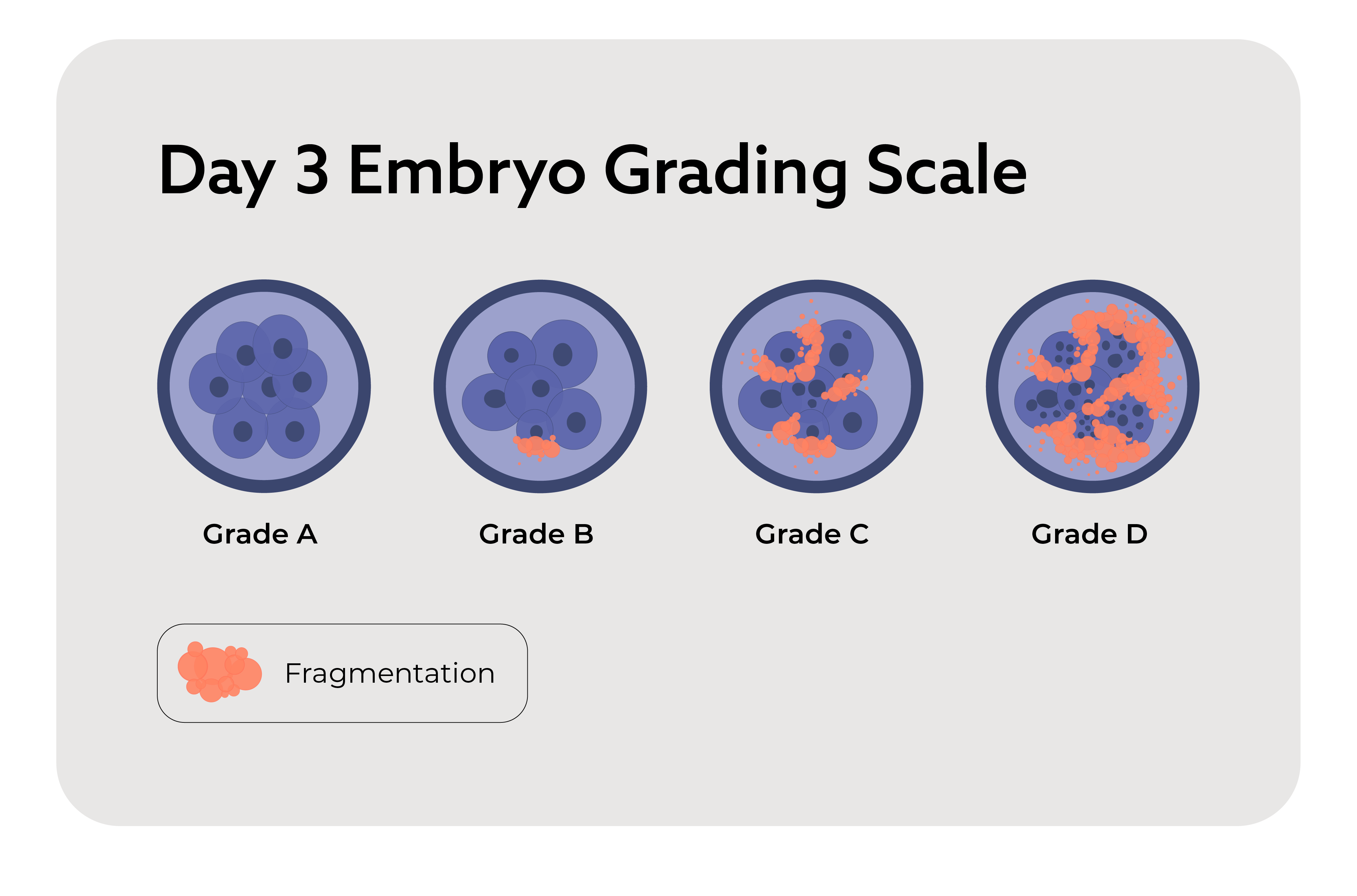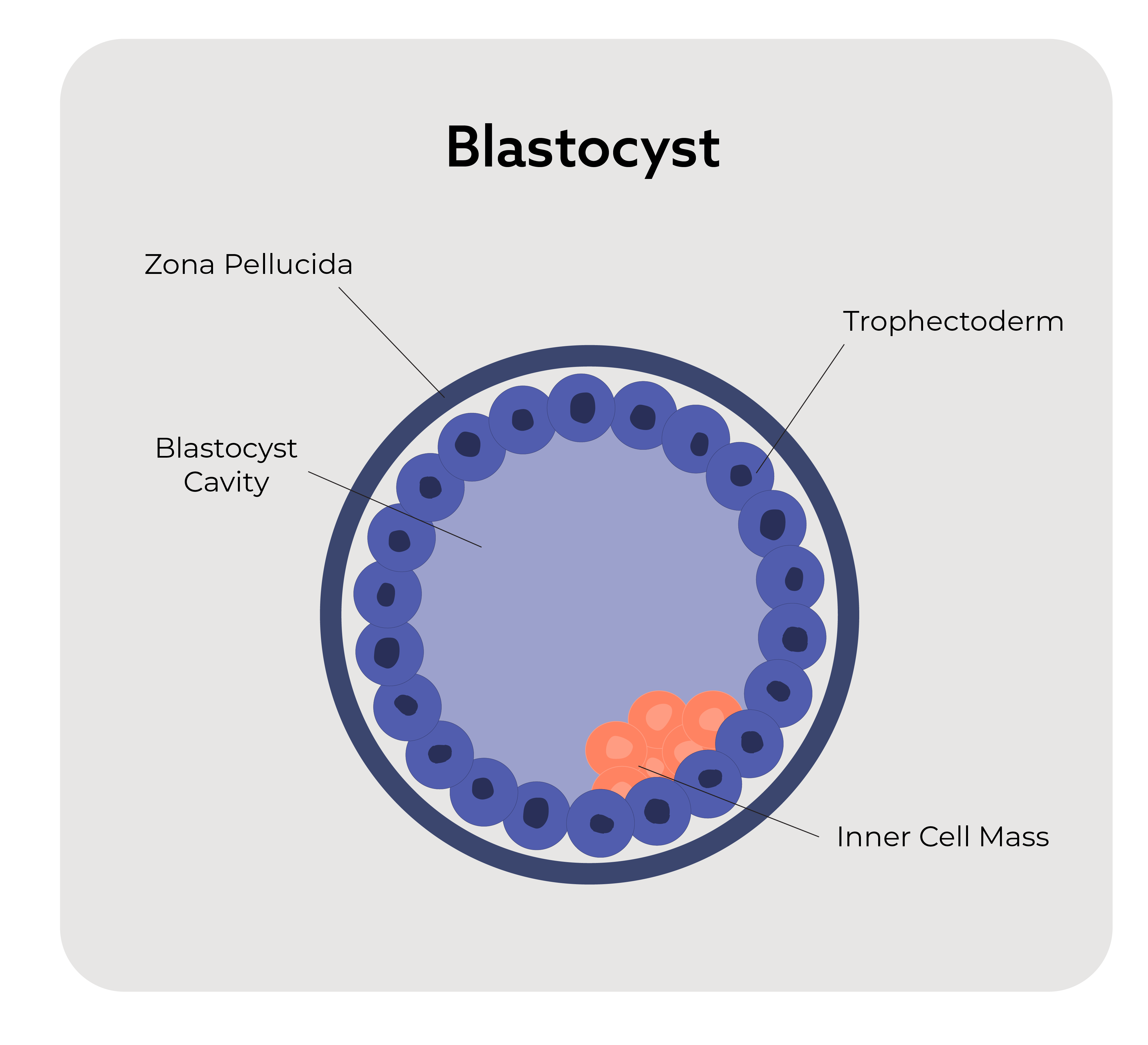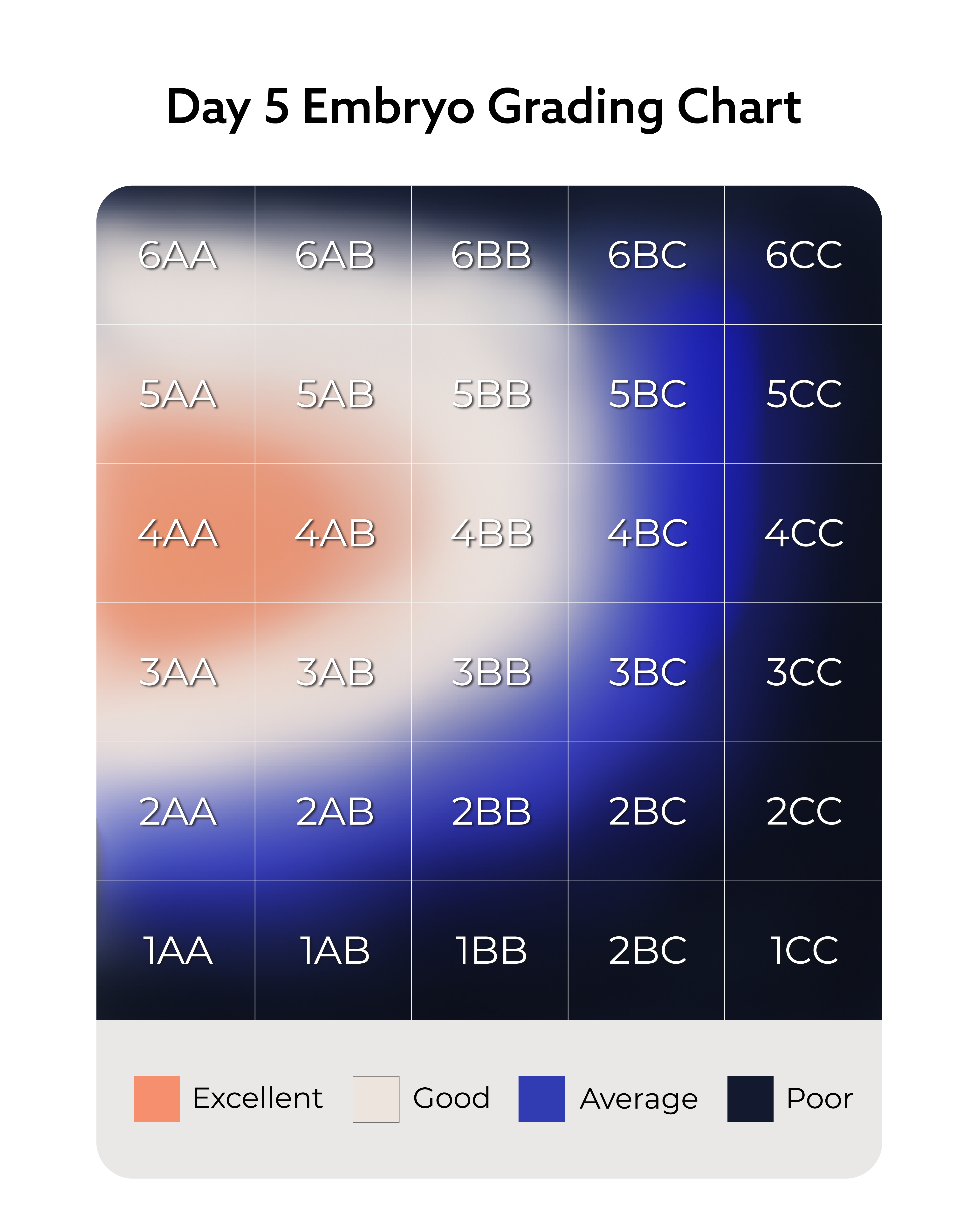In vitro fertilization (IVF) embryo grading determines which embryos are most likely to result in a pregnancy.
IVF embryo grading is essentially a quality analysis of your embryos. By evaluating embryos based on specific criteria, doctors can assess the health and viability of embryos before they are transferred. If you already have graded embryos and are considering surrogacy, this can speed up your match time significantly.
If you want to know more about transfer success rates, you can read our other related article online. Understanding this aspect of the embryo creation process can give you the confidence and knowledge to move forward with your IVF or surrogacy plans.
What Is IVF Embryo Grading?
Embryo grading for IVF is designed to evaluate embryos based on their developmental stage and quality. This assessment helps embryologists identify the embryos that are most likely to result in a successful pregnancy. By examining various aspects of the embryo's development, such as cell number, symmetry and the presence of any fragmentation, doctors can make informed decisions about which embryos are best for the embryo transfer.
IVF Embryo Grading Scale
The grading of embryos in IVF involves a detailed examination of their development at specific stages. This process is crucial because it helps prioritize embryos for transfer, especially when there are multiple embryos available.
Typically, embryologists assess the embryos at two different points after fertilization: day 3 and day 5. The exact scales used can vary between fertility clinics, but embryologists tend to look for the same characteristics.
Here’s what you should know about each day’s embryo development IVF grading:
What Is Day 3 Grading in IVF?
On day 3, embryos are at the cleavage stage. At this point, the embryo is typically composed of about six to ten cells contained in a membrane called the zona pellucida. Day 3 IVF embryo grading evaluates embryos based on the number of cells, the evenness of cell division (symmetry) and the degree of fragmentation (presence of cell debris).
The grading scale for day 3 embryos usually ranges from numbers 1 to 4 or letters A to D, with 1 or A indicating a higher potential for successful implantation.
- Grade 1 or A
Six to ten uniform cells with no fragmentation
- Grade 2 or B
About three to six uniform cells with minimal fragmentation
- Grade 3 or C
Unequal cells with zero to moderate fragmentation
- Grade 4 or D
Uniform or unequal cells with moderate to heavy fragmentation

What Is Day 5 Grading in IVF?
By day 5, embryos are at the blastocyst stage. This stage is characterized by a fluid-filled cavity, a distinct inner cell mass (ICM) that will develop into the fetus and an outer layer of cells called the trophectoderm (TE) that will form the placenta.

Grading embryos in IVF at this stage involves examining these three structures. The blastocyst cavity is graded on a scale of 1 to 6, and the inner cell mass and trophectoderm are graded on a letter scale of A to C.
Embryologists examine the blastocyst’s degree of expansion. A quality embryo will have a cavity that’s fully expanded or hatched out of the zona pellucida.
- Grade 1
Blastocyst makes up less than half of the embryo
- Grade 2
Blastocyst takes up more than half of the embryo
- Grade 3
Fully expanded blastocyst
- Grade 4
Blastocyst is larger than the embryo; the zona pellucida (outer membrane) is thinning
- Grade 5
Hatching blastocyst
- Grade 6
Fully hatched blastocyst
The inner cell mass will eventually make the baby. To determine its quality, embryologists look at the amount of cells and how defined they are.
- Grade A
Many tightly packed and well-defined cells
- Grade B
Some loosely grouped cells
- Grade C
Few cells or disorganized inner cell mass
The trophectoderm cells will make up the placenta. A cohesive trophectoderm suggests a higher chance of successful implantation.
- Grade A
Many cells form a cohesive layer
- Grade B
Some cells form a loose layer
- Grade C
Very few cells or a poorly formed layer
What Is the Best Grade of Embryos in IVF?
The best embryos typically receive the highest quality scores, such as Grade 1 or A on day 3 or 5AA on day 5. However, it’s important to remember that “perfect” embryos are rare. While high-quality embryos have a better chance of leading to a successful pregnancy, many lower-graded embryos can still result in healthy babies.

Success Rates for IVF Grading of Embryos
Grading IVF embryos is vital because it helps predict the likelihood of a successful pregnancy. Research shows that these grades do correlate with higher chances of success. For instance, “excellent” embryos have a clinical pregnancy rate of 65%, “good” embryos have a 59.3% rate, “average” embryos have a 50.3% rate and “poor” embryos have a 33.3% rate.
However, even lower-graded embryos can lead to successful pregnancies. While higher grades do indicate a better potential, the IVF embryo grading process is not foolproof. Many factors contribute to the success of implantation, including the age of the person supplying the eggs, the uterine environment and the transfer itself. No matter the grade of your embryos, there is still hope and potential for success.
Why Does IVF Embryo Grading Matter for Surrogacy?
There are two primary ways that embryo grading affects the surrogacy process:
-
Transfer success: Highly graded embryos correlate with higher IVF success rates. While it is common for there to be more than one transfer attempt (even in surrogacy, where IVF success rates are generally higher), having highly graded embryos can increase your odds of pregnancy in fewer transfer attempts.
-
Match times: Matching with a surrogate is a crucial step in the early surrogacy process. Many surrogates are concerned about working with parents who have not tested or graded their embryos. Coming into the process with graded embryos can reduce your wait time for a match.
What’s Next?
If you have graded embryos, you may want to know more about how likely it is to implant based on its grade. Success rates depend on whether the embryo is high quality or low quality.
If you’re considering surrogacy, we can help you find a surrogate once your embryos are created. Fill out this form or call 1-800-875-BABY to learn more.